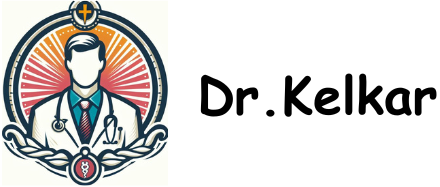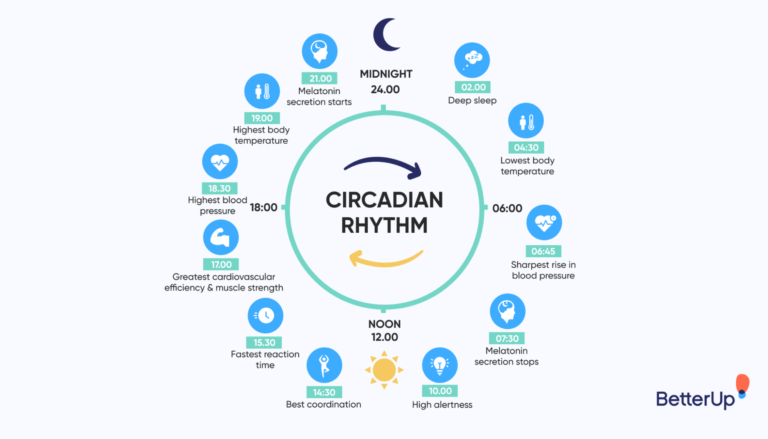From Blue Pills to Natural Cures: A Timeline of Erectile Dysfunction Treatments

The Discovery of Penile Injections and Suppositories

Penile injections and suppositories have played a significant role in the treatment of erectile dysfunction (ED) over the years. These methods offer an alternative to oral medications and have proven to be effective for many individuals.
Penile injections involve the direct delivery of medication into the base or side of the penis using a fine needle. The most commonly used medication for these injections is alprostadil, a prostaglandin E1 analogue that helps to relax the smooth muscles in the penile arteries and increase blood flow. This results in an erection that can last for up to an hour. Suppositories, on the other hand, are small pellets inserted into the urethra using an applicator. Once inserted, the suppository dissolves, releasing medication that helps to improve blood flow and achieve an erection.
Both penile injections and suppositories offer a reliable and effective treatment option for individuals who may not respond well to oral medications or those who prefer a more direct approach. However, it is important to note that these methods do carry some risks and potential side effects, such as pain at the injection site or urethral burning. Therefore, it is crucial for individuals considering these treatments to consult with a healthcare professional who can provide proper guidance and ensure safe administration.
The Rise of Oral Medications for Erectile Dysfunction

Oral medications have revolutionized the treatment of erectile dysfunction, offering a convenient and effective option for men experiencing this common condition. These medications work by enhancing the natural process of erectile function, allowing men to achieve and maintain an erection during sexual activity. Often referred to as PDE5 inhibitors, these oral medications work by inhibiting the enzyme phosphodiesterase type 5, which plays a key role in regulating blood flow to the penis.
The most commonly prescribed oral medication for erectile dysfunction is sildenafil, more commonly known by its brand name, Viagra. This medication is taken approximately one hour before sexual activity and has been shown to be highly effective in treating erectile dysfunction in a majority of men. Other PDE5 inhibitors used in the treatment of erectile dysfunction include vardenafil and tadalafil, with each medication varying in terms of dosage, onset of action, and duration of effectiveness. It is important to note that these medications are not aphrodisiacs and do not increase sexual desire; they simply facilitate the physiological response to sexual stimulation. It is always recommended to consult with a healthcare professional before starting any medication for erectile dysfunction to determine the most appropriate medication and dosage.
The Development of PDE5 Inhibitors
In the quest to find effective treatments for erectile dysfunction (ED), researchers have made significant strides in the development of PDE5 inhibitors. PDE5, or phosphodiesterase type 5, is an enzyme that plays a critical role in regulating blood flow to the penis. By inhibiting the activity of PDE5, these medications aim to promote the dilation of blood vessels and increase the blood flow to the penis, ultimately aiding in achieving and maintaining an erection.
One of the first PDE5 inhibitors to gain approval from the U.S. Food and Drug Administration (FDA) was sildenafil, commercially known as Viagra. Since its introduction in 1998, sildenafil has revolutionized the treatment of ED by providing a safe and effective oral medication option for millions of men worldwide. Its success paved the way for the development of other PDE5 inhibitors, such as tadalafil (Cialis) and vardenafil (Levitra), which also proved to be efficacious in improving erectile function. These medications have become the go-to choice for many men experiencing ED, offering a viable solution with high success rates and minimal side effects. However, it is worth noting that individual response to PDE5 inhibitors may vary, and consultation with a healthcare professional is essential to determine the most suitable medication and dosage for each patient.
Alternative Therapies for Erectile Dysfunction

Alternative therapies for erectile dysfunction have gained attention as potential treatment options for those who are unable to achieve or maintain an erection. While traditional medical interventions, such as oral medications and injections, continue to be widely used, alternative therapies offer an alternative approach to addressing this common condition. These therapies encompass a range of practices, including natural remedies, lifestyle changes, and holistic treatments, with the aim of improving sexual function and overall well-being.
One alternative therapy that has garnered interest is the use of acupuncture. Derived from traditional Chinese medicine, acupuncture involves the insertion of thin needles into specific points on the body. Advocates of acupuncture for erectile dysfunction believe that it can help restore the flow of energy, or Qi, to the reproductive organs, thereby improving sexual function. While research in this area is limited, some studies have reported positive outcomes, indicating that acupuncture may be a promising adjunct therapy for erectile dysfunction. However, further research is needed to fully understand its effectiveness and mechanism of action.
Another alternative therapy that has gained attention is the use of herbal supplements. These supplements often contain natural ingredients, such as ginseng, ginkgo biloba, and L-arginine, which are believed to enhance sexual function. While some studies have shown promising results, the efficacy of herbal supplements in treating erectile dysfunction remains uncertain. It is important to note that herbal supplements are not regulated by the Food and Drug Administration, and their safety and quality can vary. Therefore, it is crucial to consult with a healthcare professional before incorporating these supplements into your treatment plan.
In conclusion, alternative therapies for erectile dysfunction offer additional options for individuals seeking alternative approaches to manage their condition. While some therapies have shown promise in preliminary studies, more research is needed to establish their effectiveness and safety. It is essential to consult with a healthcare professional before embarking on any alternative therapy to ensure proper guidance and comprehensive care.
The Role of Lifestyle Changes in Treating Erectile Dysfunction
Erectile dysfunction (ED) is a common condition affecting many men worldwide. While medications such as PDE5 inhibitors have revolutionized the treatment of ED, lifestyle changes also play a crucial role in managing this condition. By adopting a healthy lifestyle, men can significantly improve their sexual health and potentially reduce the need for medication.
One key aspect of lifestyle modification is maintaining a balanced diet. Research suggests that certain nutrients, such as antioxidants and omega-3 fatty acids, may have a positive impact on erectile function. Foods rich in these nutrients include fruits, vegetables, fish, and nuts. Additionally, incorporating foods known to support cardiovascular health, such as whole grains and lean proteins, may also benefit sexual function. Adhering to a nutritious diet not only improves overall well-being but can also promote healthy blood flow to the penile region, an essential component for achieving and maintaining an erection.
In addition to dietary changes, regular physical activity is crucial for managing erectile dysfunction. Multiple studies have demonstrated the positive impact of exercise on erectile function. Engaging in aerobic exercises, such as brisk walking, jogging, or cycling, can improve cardiovascular health, increase blood flow, and potentially enhance erectile function. Resistance training, aimed at improving strength and muscle tone, may also have a positive effect on sexual health. As each individual’s needs and capabilities differ, consulting with a healthcare professional or a certified trainer can help develop a personalized exercise plan that suits one’s goals and preferences.
Certainly! Here’s a concise data table on the role of lifestyle changes in treating erectile dysfunction:
| Lifestyle Changes in Treating Erectile Dysfunction | Description | Source |
|---|---|---|
| Regular Exercise | Engaging in physical activity improves blood flow, promotes overall health, and can have a positive impact on erectile function. | Mayo Clinic – Exercise and Erectile Dysfunction |
| Healthy Diet | Adopting a nutritious diet, particularly one that supports cardiovascular health, can contribute to better overall blood circulation and sexual function. | Harvard Health Publishing – Foods for Erectile Dysfunction |
| Maintaining a Healthy Weight | Obesity is linked to erectile dysfunction, and achieving and maintaining a healthy weight can improve sexual health. | International Journal of Impotence Research – Obesity and erectile dysfunction: a practical approach for diagnosis and treatment |
| Limiting Alcohol Consumption | Excessive alcohol intake can contribute to erectile dysfunction, and moderation or abstinence may improve sexual function. | Urology Care Foundation – How Does Alcohol Affect Your Sex Life? |
| Quitting Smoking | Smoking damages blood vessels and can lead to erectile dysfunction; quitting smoking is a crucial step in improving sexual health. | Centers for Disease Control and Prevention – Smoking and Erectile Dysfunction |
[Please note that the above information is intended for educational purposes only. It is crucial to consult with a healthcare professional for specific advice and guidance tailored to individual needs and medical history.]
Exploring Natural Remedies for Erectile Dysfunction
When it comes to addressing erectile dysfunction (ED), some individuals may be interested in exploring natural remedies before turning to pharmaceutical solutions. While it is important to note that natural remedies might not have the same level of scientific evidence and regulatory approval as conventional medications, several options have been suggested as potential aids for ED. These natural remedies often involve lifestyle modifications, dietary changes, and the use of specific herbs or supplements. However, it is crucial to approach these remedies with caution, as their effectiveness and safety may vary.
One potential natural remedy that has gained attention in recent years is the use of a herb called Panax ginseng. Ginseng has historically been used in Traditional Chinese Medicine for various ailments, including sexual dysfunction. Some studies have suggested that ginseng may enhance erectile function by increasing the production of nitric oxide, a compound that relaxes blood vessels and promotes blood flow to the penis. However, more robust research is needed to establish the efficacy and safety of ginseng for ED.
Another natural remedy that has been explored is L-arginine, an amino acid that plays a role in the production of nitric oxide. L-arginine is believed to enhance blood flow, which may improve erectile function. Although some studies have shown promising results, the evidence supporting the use of L-arginine for ED remains inconclusive. It is also important to note that L-arginine may interact with other medications and cause side effects, so individuals should consult with a healthcare professional before incorporating it into their treatment regimen.
While natural remedies may seem appealing, it is crucial to approach them with skepticism and consult with a healthcare professional before trying them. Furthermore, it is important to remember that ED can have underlying physical or psychological causes that require medical attention. Seeking professional guidance allows individuals to receive a comprehensive evaluation and develop a treatment plan tailored to their specific needs.
What are penile injections and suppositories for erectile dysfunction?
Penile injections and suppositories are alternative treatments for erectile dysfunction. They involve the administration of medication directly into the penis to help achieve and maintain an erection.
How do penile injections and suppositories work?
Penile injections and suppositories work by increasing blood flow to the penis. The medication relaxes the blood vessels, allowing more blood to flow in, which helps to create and sustain an erection.
What are oral medications for erectile dysfunction?
Oral medications for erectile dysfunction are pills that are taken by mouth to help treat the condition. These medications work by increasing blood flow to the penis, enabling an erection when sexual stimulation occurs.
What are PDE5 inhibitors?
PDE5 inhibitors are a type of oral medication commonly used to treat erectile dysfunction. They work by inhibiting the enzyme phosphodiesterase type 5, which helps to relax the blood vessels in the penis and increase blood flow, resulting in an erection.
Are there any alternative therapies for erectile dysfunction?
Yes, there are alternative therapies for erectile dysfunction. These can include acupuncture, herbal supplements, and natural remedies. While some individuals may find these options helpful, it is important to consult with a healthcare professional before trying alternative therapies.
Can lifestyle changes help treat erectile dysfunction?
Yes, lifestyle changes can play a significant role in treating erectile dysfunction. Maintaining a healthy weight, exercising regularly, managing stress levels, quitting smoking, and reducing alcohol consumption can all contribute to improved sexual function.
What are some natural remedies for erectile dysfunction?
Some natural remedies for erectile dysfunction include certain herbs and supplements, such as ginseng, L-arginine, and zinc. Additionally, making dietary changes, such as consuming a balanced diet rich in fruits, vegetables, and whole grains, can also help improve symptoms of erectile dysfunction.
Are natural remedies as effective as medical treatments for erectile dysfunction?
The effectiveness of natural remedies for erectile dysfunction may vary from person to person. While some individuals may experience positive results with natural remedies, others may require medical treatments such as oral medications or penile injections. It is best to consult with a healthcare professional to determine the most suitable treatment approach for individual circumstances.





